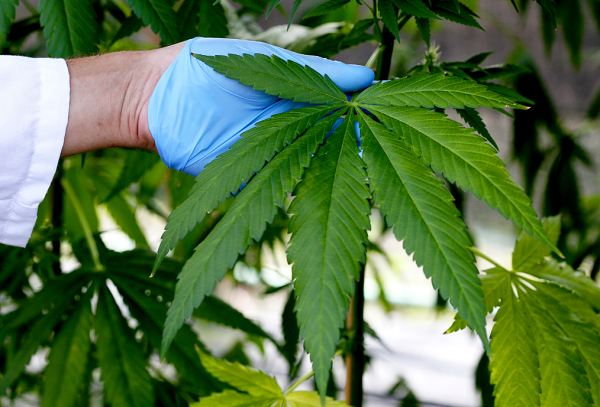Trump Cabinet Update: Where Does John Kelly And Other Cabinet Members Stand On Drug Legalization?

President-Elect Donald Trump named this week retired Marine General John Kelly to head the Department of Homeland Security. Before retiring, Kelly oversaw security operations in the Caribbean, Central America and South America as the head of U.S. Southern Command, oftentimes using his expertise to tackle issues regarding the flow of illicit drugs like cocaine, heroin and weapons from foreign countries to the U.S.
Although Kelly has been a force in the crackdown on drug trafficking from the Southern Hemisphere and he has insinuated that the legalizing marijuana could skew foreign drug dealers perception on where the U.S. stands on the war on drugs, his personal sentiments on legalizing cannabis, particularly medical cannabis, aren’t nearly as brutal as some of Trump’s other cabinet picks. The newly elected president has already chosen a good handful of cabinet members, some of whom have some pretty harsh views on marijuana legalization.
John Kelly, Department of Homeland Security: Kelly opposes widespread legalization of marijuana because it undermines U.S. efforts to crack down on the distribution of harder substances like cocaine, heroin and methamphetamine, he told Military Times in November. While he does believe cannabis is a “gateway drug,” Kelly seems to be okay with the idea of ailing people having access to legal medical marijuana. During the interview with Military Times, Kelly said, “If it has a medical use – I’m not a doctor but I’m told it has a medical use – whether it’s veterans or anyone else, if it helps people, then fine. Medicine is medicine.”
Tom Price, Department of Human and Health Services: The Georgia Congressman has a long history of opposing and voting against several marijuana proposals in the House in past, including the six votes he cast against amendments aimed at blocking the Justice Department from interfering with recreational marijuana laws in individual states, according to Washington Post. Price, who hasn’t been very vocal about his opposition to marijuana, also voted three times against an amendment that would allow Veteran Affairs doctors to prescribe medical marijuana to ailing veterans.
Dr. Ben Carson, Department of Housing and Urban Development: The retired neurosurgeon has been a steady advocate for the war on drugs and has openly opposed recreational marijuana laws. However, Carson has recognized the benefits of medical marijuana, telling FOX News’ Greta Van Susteren that the “medical use of marijuana in compassionate cases certainly has been proven to be useful, but recognize that marijuana is what’s known as a gateway drug. It tends to be a starter drug for people who move on to heavier duty drugs, sometimes legal, sometimes illegal. I don’t think that this is something that we really want for our society. We’re gradually just removing all the barriers leading to hedonistic activity.”
Renice Priebus, Chief of Staff: The Republican National Committee chairman hasn’t been particularly vocal about his views on marijuana legalization overall. However, shortly after Colorado legalized recreational marijuana in 2014, Priebus told Denver Post that he was “not a big fan of the law.”
“Good people don’t smoke marijuana” -Jeff Sessions, Trump's attorney general pick https://t.co/aQM4c615Yi
— VICE News (@VICENews) November 20, 2016
Jeff Sessions, Attorney General: Sessions has strongly opposed marijuana use of any kind. Not only has Sessions publically stated that “good people don’t smoke marijuana” during a Senate hearing back in April, but the Alabama Senator once reportedly joked that he had no issues with the Ku Klux Klan until he “found out they smoked pot.” He’s also stated that marijuana is a "very real danger" and is "not the kind of thing that ought to be legalized."
© Copyright IBTimes 2025. All rights reserved.






















